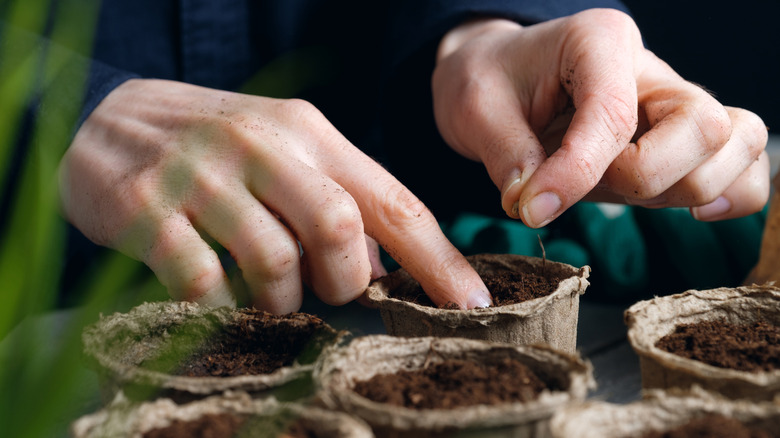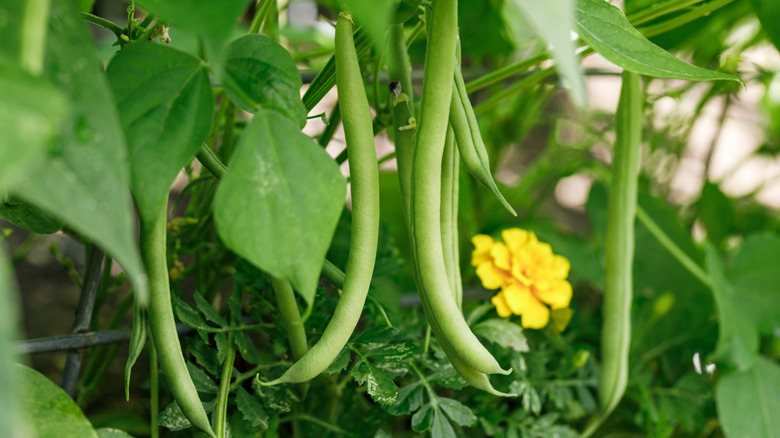The Type Of Garden Seed You Shouldn't Save And Why
There are several good reasons for saving seed. One of the benefits of starting seeds instead of buying plants is the money you can save. After all, saved seeds are free. Second, rather than starting out with an untried packet, with saved seed you know exactly what you should get. Third, it's fun and very rewarding. Even if you're just starting out on your seed-saving journey, there are plenty of beginner-friendly options to encourage you.
However, there is some seed you shouldn't save. For example, it's not a good idea to save seeds from plants that didn't grow particularly well. Whatever the reason, it's pretty unlikely they'll get better the next time around. Those aren't the worst culprits, though. The main seeds you shouldn't save are any that come from hybrid plants, and it's true for flowers, fruit, and vegetables.
There are two potential problems. Sometimes the saved seeds will be sterile. They just won't germinate and grow. More often they will produce a plant, but results may well be disappointing. To understand why, it helps to know what happens with successive generations of hybrid plants. It's also worth looking at a couple of alternatives that produce seeds worth saving.
The best of both worlds, but probably only once
Hybrids are nothing new. People have been cross-pollinating different plants for over 300 years to combine the best of both parents. When you see F1 on a seed packet, inside is a first-generation hybrid that usually produces vigorous plants with plenty of flowers, fruit, or vegetables. There are also F2 hybrids, where F1 hybrids have been mixed.
Growing F1 seeds can be great for first-year results. The problem is that saved seed from F1 plants is unpredictable. The plant may not grow at all. If it does, it may not be as strong or flower so well. Although a saved hybrid bean, for example, will likely still produce beans, they will be a different size and probably won't taste the same. Worse, there's absolutely no way of knowing what will happen, so growing them could be a complete waste of time and effort.
There are alternatives that don't give these problems with saved seed. If you check out the best companies to buy your garden seeds from, you'll find open-pollinated (OP) seeds, where the parents are from the same variety rather than being cross-pollinated. Additionally, you may notice heirloom seeds that have been around for generations. Both can be saved and replanted year after year. You can also grow fascinating examples of well-known vegetables that could amaze your friends and neighbors. Things like tomatoes that are yellow or black or carrots that are white or purple.

